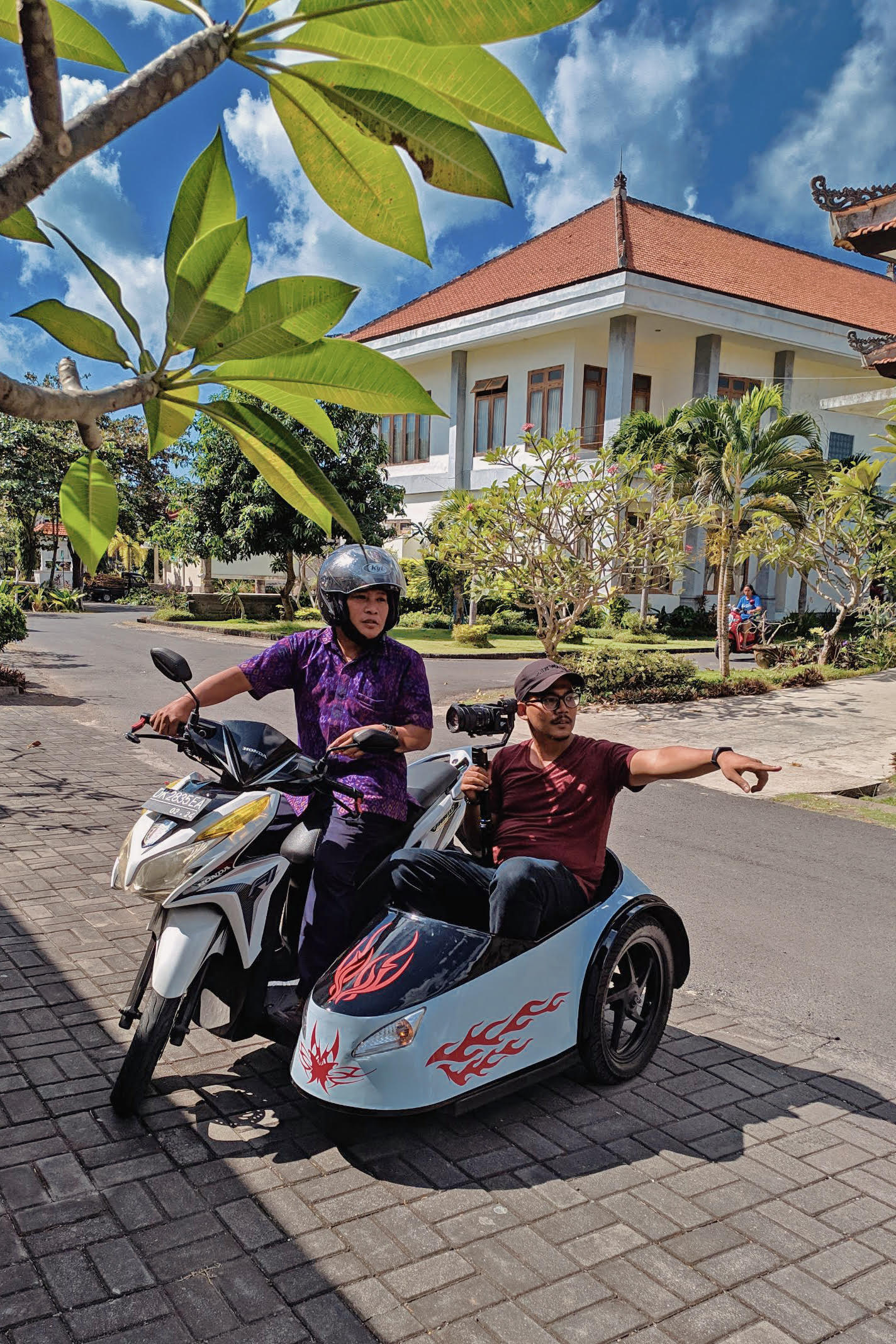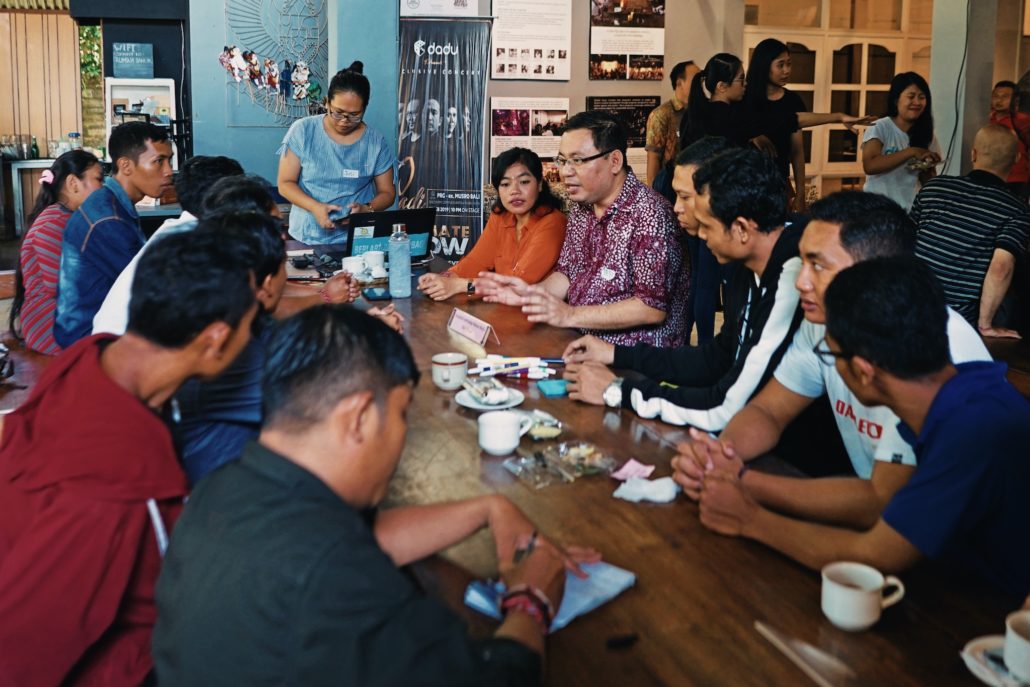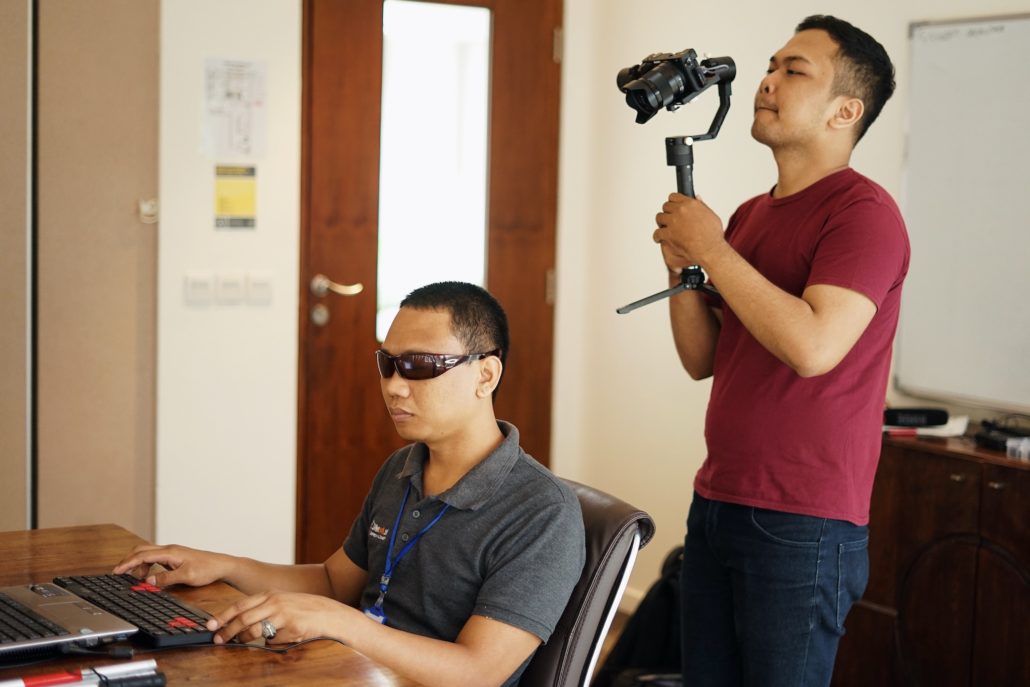Almost five months have passed since the World Health Organization (WHO) declared COVID-19 a pandemic. By now, many feel completely overwhelmed by the cacophony of coronavirus-related content, information, and recommendations filling screens and news feeds — but not everyone.
On March 17, the UN Special Rapporteur on the rights of persons with disabilities (PWD), Catalina Devandas, argued that “little has been done to provide people with disabilities with the guidance and support needed to protect them during the ongoing COVID-19 pandemic, even though many of them are part of the high-risk group.”
Devandes explained that, “to face the pandemic, it is crucial that information about how to prevent and contain the coronavirus is accessible to everyone. Public advice campaigns and information from national health authorities must be made available to the public in sign language and accessible means, modes and formats, including accessible digital technology, captioning, relay services, text messages, easy-to-read and plain language.”
The day before this announcement, the Indonesian Association for the Welfare of the Deaf (GERKATIN) sent an open letter to President Joko “Jokowi” Widodo. In the letter, GERKATIN expressed its appreciation for the government’s COVID-19 press conferences and efforts to educate the nation about containment practices. It also stated, however, that the government had failed to protect the right of accessibility to information for deaf and hard of hearing Indonesians, citing five articles of legislation containing these rights.
“Given that we have a variety of literacy abilities and response capabilities, we face obstacles in keeping up to date with information related to the global COVID-19 pandemic,” the association, which was founded in 1981, wrote. For their rights to be upheld, GERKATIN requested that the central and regional governments, private sector, and media companies provide sign language interpreters and Indonesian text for all reports on the coronavirus, in accordance with recommendations from the World Federation of the Deaf.
What, if anything, has changed since the letter was sent? According to Ade Wirawan, a deaf activist and member of Bali Deaf Community, a group of young people from GERKATIN’s Denpasar and Bali chapters, “only in Jakarta have the relevant parties prepared to provide sign language interpreters for each report.”
While efforts have been made elsewhere in Indonesia, such as in East Nusa Tenggara’s (NTT) “Governor’s Corner” updates on the health crisis, the use of interpreters in Indonesia is still far from consistent. The NTT Governor also recently appointed a student with a disability as a special advisor.
“In essence, disability means that there are obstacles in the environment, and not that we ourselves do not have the ability.”
In late April, the Bali Deaf Community and GERKATIN Bali met with the provincial government’s social, education, labor, and communication and information departments to request Bisindo interpreters for televised coronavirus reports, but since the meeting, Ade said nothing has changed.
Bisindo is a compound of Bahasa Isyarat Indonesia (Indonesian Sign Language). Emerging before independence, it has a variety of dialects across different regions and is the language most commonly used by the nation’s deaf communities and allies, including interpreters from the Sign Interpreter Service Center in Jakarta, which operates under GERKATIN. Despite its popularity, however, a different language, SIBI, is used by special education interpreters for government updates in electronic media.
SIBI is an acronym for Sistem Isyarat Bahasa Indonesia (Indonesian Sign Language System). It was adapted from the US-developed system Seeing Essential English by a hearing person, a former head of Indonesia’s Sekolah Luar Biasa (special education system). SIBI was formalized by the Indonesian government for use in special schools and government institutions in 1994, without the involvement of deaf communities. Unlike Bisindo, which is spoken with two hands, SIBI uses only one, and is widely considered more difficult due to its complicated vocabulary and use of prefixes and suffixes.
According to University of Indonesia’s sign language expert Adi Kusumo Baroto, Bisindo is more representative than SIBI of the intentions of Indonesia’s deaf communities. Meanwhile, Ade said that the Bali Deaf Community “doesn’t really understand SIBI,” and they have data to prove it.
In late May, alongside GERKATIN Bali, the social initiative Bumi Setara, and data literacy project Cerita Data, the Bali Deaf Community conducted a survey to gauge the impacts of the pandemic for those on the island who are deaf and hard of hearing (and have internet access). Among the 91 respondents, 68 percent said they did not understand or were confused about COVID-19 information conveyed by interpreters on TV. When asked their preferred sign language for reports — SIBI or Bisindo — only 1 percent preferred the former.
This unequal access to coronavirus information is one of myriad examples that “may as well indicate an ideology of ableism that the pandemic has unearthed and strengthened,” wrote Indonesian scholar with a disability, Dr Antoni Tsaputra, in New Mandala. “Ableism may also constitute a judgment about a person’s ability to contribute to society and the value that society places on them.”
Difabel Kerja: A Disability Learning Series
As Bali begins to restart its economy after three months of containment efforts, now is a good time for the government, local businesses, and organizations to assess their level of inclusivity. To support the process, Ade hopes that “the government provides information to companies to increase employment access” for PWD.
For those wanting to work alongside Indonesian PWD in a wide array of sectors, the recently launched short film series Difabel Kerja is a great place to start.
Difabel Kerja was produced by Satu Bumi Jaya, a team of development professionals and filmmakers, photographers, and designers based in Bali. The series takes its name from the term many PWD Indonesians prefer calling themselves, difabel, or differently abled, while kerja means work in Indonesian. The episodes — “Tuli (Deaf),” “Tunanetra (Blind),” “Fisik (Physical),” and “Intelektual (Intellectual)” — are aimed squarely at employers and workplaces, and available copyright-free for streaming and download for any positive use by individuals, businesses or organizations.
Executive Director of Satu Bumi Jaya, Will Shea, explained that throughout their work with Indonesian PWD communities, one of the key issues is, unsurprisingly, employment. He said that while many organizations and efforts focus on the important aspect of increasing the skills and capacities of PWD, if businesses remain unwilling to employ them, “we’re only halfway home.”
This is why, during Difabel Kerja’s pre-production, his team surveyed businesses and other potential employers to discover what made them hesitant to employ PWD. They brought their findings to PWD communities, and worked with them on how to respond to aspects raised through the survey.
“We worked with groups and individuals to develop concepts, ideas and scripts for the episodes. After this, we produced the films together — the PWD ethos is ‘nothing about us, without us.’ The series aims to provide direct and attractive information to potential employers, which would help them overcome some of the key issues highlighted in our survey, and be more open to employing PWD,” Will said.
“Everyone involved in Difabel Kerja plays their own role within disability employment advocacy and action, so we hope the final results can also act as our small part to help advance disability rights and employment in Indonesia.”
Not a disability, a socio-cultural identity
The results are four lively, compelling, creative films, each less than eight minutes long, which feature, among others, a fashion designer, computer technician, makeup artist, public officer, teacher, and rehabilitation assistant. Each of them share a clear message, which is expressed by Ida Bagus Aditya Pidada, a massage clinic manager, on the “Blind” episode: “With a little support and adaptation we can do almost anything; it all depends on our skills and knowledge, which varies for each person.”

Similarly, administration officer Ni Komang Ayu Diantari Putri affirms during the “Deaf” episode: “We have a variety of capabilities, but all with a single goal: to be employed just like those who can hear. A little introduction about deafness to your staff, and support with communication, means we are capable of doing any work, as long as it is suited to our skillset.”
In a WhatsApp interview Ayu explained, “in essence, disability means that there are obstacles in the environment, and not that we ourselves do not have the ability.”
Both Ade and Ayu feel strongly that deafness is not a disability, but a socio-cultural identity. “Tuli is a signing linguistic minority group. It doesn’t mean deaf, mute, hearing or speech-impaired, in the literal sense, but a socio-cultural identity,” Ade said.
“Difabel is a spectrum of different abilities,” said Ayu. “For example, people who do not have hands, so instead use their feet to paint.”
A shining example of inclusivity
For Bali businesses and organizations wanting to make their offices or spaces more inclusive, a shining example on the island is Rumah Sanur Creative Hub. In 2016, the creative hub — which has a history of working with various local and national disability organizations on skills development programs, including the Bali Deaf Community — rebuilt its space to become disability-friendly.
The renovations included purpose-built facilities for disability access, the refurbishment of existing ramps to enable safe and easy wheelchair access, a dedicated pick-up and drop-off zone, a canopy structure to provide covered access from the rain, and disabled toilet facilities.

“Innovation and being part of the creative industry ecosystem is an important part of what we do at Rumah Sanur,” said the creative hub’s Co-Director, Rudolf Dethu. “Our workshop programs aim to make sure everyone in our community has access to opportunities to further their development.”
To describe the island’s post-pandemic future, Bali’s Deputy Governor, Tjokorda Oka Artha Ardana Sukawati, uses the term “new era” rather than “new normal.” To counter the ideology of ableism that has been strengthened by COVID-19, Bali’s “new era” should not only encourage a shift in the island’s tourism paradigm, but its diversity, equity, and inclusion paradigm too.
Read Also –Vital Signs: In Bali’s ‘deaf village,’ a unique language gives hope to a new generation




